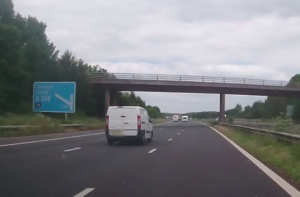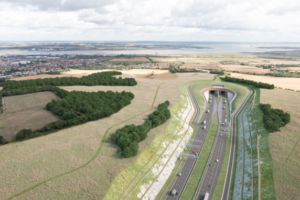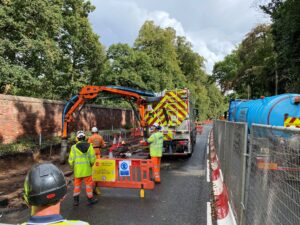National Highways has said it wants at least 5% of its workforce enrolled on formal apprenticeships or graduate development schemes within five years.
This comes as part of a new Social Value plan launched by the organisation this week.
On the environment, the plan sets out that the company will respect neighbouring communities by reducing the impact on air quality, noise and water quality; supporting a healthier society.
The plan for this year includes:
■ Approved social value definition and
framework in place
■ Launch social value plan internally and
externally to ensure consistency
■ Implement a base set of
supply chain metrics
■ Capture supplier contributions in social value
reporting tool
■ Establish social value governance: steering
group, cross-department working group and
supply chain focus group
■ Review and update our project and
operational processes
■ Trial a Social Value Fund supporting small
community benefit projects
National Highways Executive Director of Commercial & Procurement Malcolm Dare said: “We play a vital role in our society and economy. As an organisation, we’re committed to connecting the country and advancing the economy through safe, sustainable, and accessible roads. All our suppliers and every person working in our organisation has a role to play.”
National Highways said: “Social value isn’t new to the company – value has been built into every aspect of its roads, whether that’s delivering 160 cycling schemes between 2015 and 2020, or plans to deliver even more, by investing £956m through the designated funds programme between 2020 and 2025.”
The social value framework focusses around four key pillars:
Economic prosperity
- *Directly contributing to economic growth including suppliers, local spend, new businesses, small-to-medium-size enterprises, micro, voluntary, charitable and social enterprises/mutuals.
- *Improving productivity by improving the strategic road network
- *Contributing to apprenticeships, skills and education, and regional economic prosperity.
Improving the environment
- *Working toward net carbon zero emissions from corporate activity, road users and construction
- *Enhancing the natural environment through improving ecosystems and biodiversity; and protecting our natural resources
- *Respecting neighbouring communities by reducing our impact on air quality, noise and water quality; supporting a healthier society.
Community wellbeing
- *Healthier and safer communities
- *Promoting safe, active travel and non-motorised users improving health from issues related to the strategic road network
- *Improving community amenities
- *Improving connections within and between communities
- *Contributing to the process of creating quality places that people want to live, work, play, and learn in
- *Supporting community education and heritage programmes.
Equality, diversity and inclusion
- *Contributing to employment and opportunities for women; ethnic minorities; the long-term unemployed; veterans; people with disabilities; the LGBTQ+ community; care givers; school leavers; young people not engaged in education, employment or training; ex-offenders; the homeless; maternity returners; new to industry; flexible workers
- *Contributing opportunities to create a more equal society
- *Creating a more inclusive and accessible strategic road network.
























